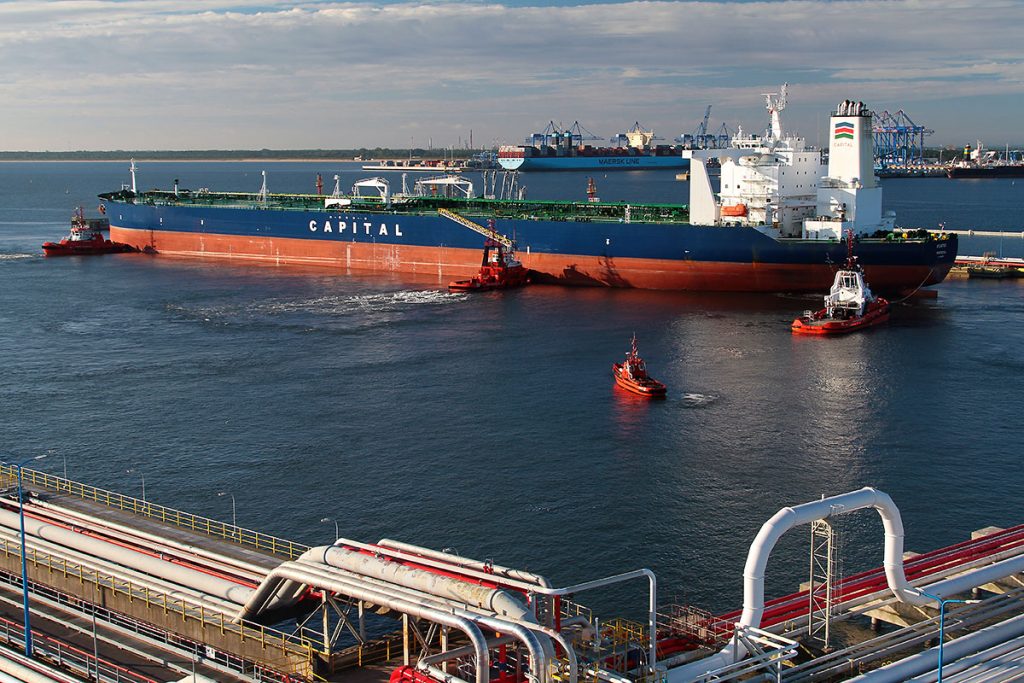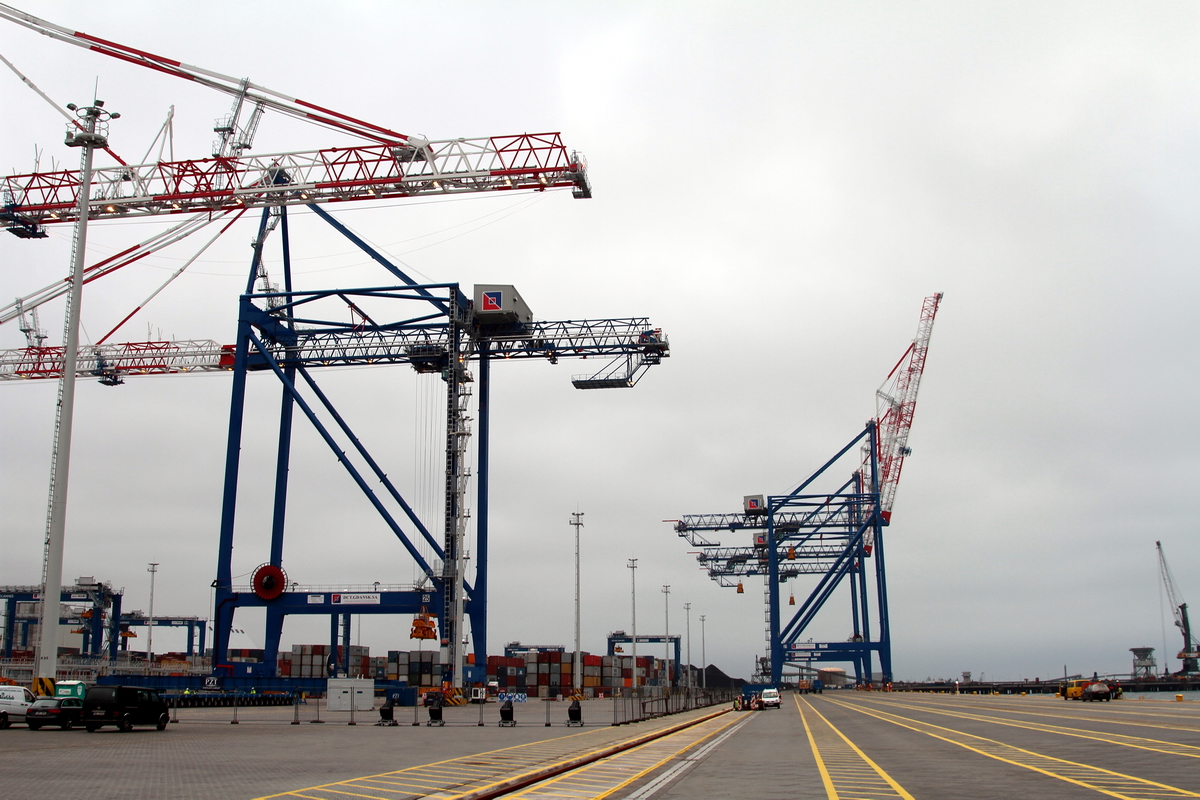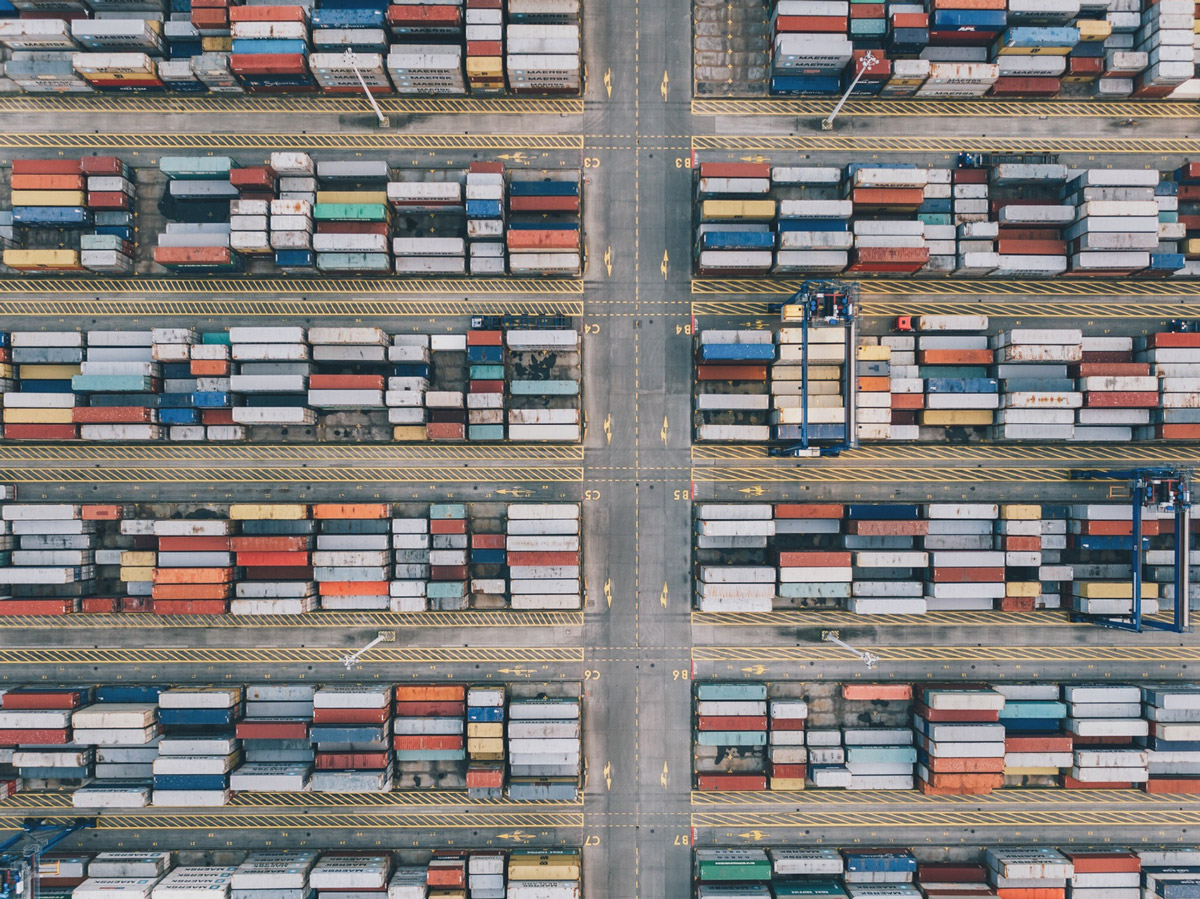In 2022. 87 per cent of oil delivered to Poland by sea came from directions other than Russia
In 2022. 87 per cent of oil delivered to Poland by sea via Naftoport came from directions other than Russia. The majority of crude deliveries were made from Saudi Arabia and Norway. This was related to sanctions against Russia and its oil sector after the aggression against Ukraine, PERN reported.
According to the company, in 2022 Naftoport in Gdansk, which belongs to its capital group, “once again achieved a record operating result”. – The handling of crude oil and fuels there amounted to 24.5 million tonnes and was 37 per cent higher than in the most intensive year to date, 2021.
In 2022. Naftoport handled 363 tankers, 36 per cent more than the year before.
“The company is today a key oil terminal that enables the necessary supply of crude to Poland and Germany,” – PERN assessed.
At the same time, he stressed that “the PERN Group’s customers imported more and more crude last year from directions other than Russia”.
“This had to do with the sanctions targeting the Russian oil sector in connection with the war waged by that country in Ukraine. Two-thirds of all supplies to Polish customers were crude from Saudi Arabia and Norway. Significant quantities of oil also came to us from the UK and the US,” – PERN pointed out.
As the company calculated, “in total, already 87 per cent of the raw material delivered by sea to our country came from directions other than Russia”.
According to PERN’s CEO Paweł Stańczyk, Naftoport, which is currently “the heart of Poland in terms of oil supplies” to our country, is also “an effective tool that allows us to be independent of raw material supplies from Russia”.
– The company is now faced with the key task of building another tanker service station in the shortest possible time, which will increase not only the efficiency of supplies, but also the country’s energy security, said Stańczyk, quoted in PERN’s communiqué, referring to Naftoport’s strategic role.
Naftoport’s President Andrzej Brzózka recalled that currently, vessels of more than 300 metres in length, with a draught of up to 15 metres, of the VLCC class can call there.
– This year we handled three such tankers, and the largest cargo batch was over 140,000 tonnes of crude oil, he added.
As he mentioned, currently Naftoport’s customers have 5 transhipment berths at their disposal there, with ‘the situation of simultaneous handling of 5 vessels becoming more and more frequent’.
– We are currently commencing the investment process for the construction of a new, sixth berth, which will allow us to ensure long-term offshore deliveries of crude oil in line with customer demand,” Brzózka announced.
According to PERN, Naftoport’s current potential enables it to handle over 36 million tonnes of crude oil and 4 million tonnes of petroleum products per year, “ensuring the ability to fulfil the contracts concluded with PERN’s customers”. Naftoport’s marine terminal handles crude oil as well as petrol, jet fuel, diesel, fuel oil, condensates and components.
“The launch of the new transshipment site will significantly increase the company’s transshipment capacity and strengthen the long-term operational efficiency of the Naftoport terminal,” – PERN assessed.
At the same time, PERN recalled that it is currently testing a measure to reduce resistance in pumping crude oil and, at the same time, increase the transfer capacity of the pipeline on the Pomeranian Section, between Gdańsk and Plock.
“The implementation of this solution is of particular importance in a situation of progressive diversification of crude supplies to Poland by sea. The measure in effect makes it possible to increase the flow of crude through the trunk pipeline by up to approximately one third at peak times,” – the company explained.
PERN admitted that it is “also analysing further investment projects that will facilitate the management of crude supplies”. The company reported that it is considering, among other things, “further expansion of the raw material base in Miszewko Strzałkowskie near Płock and the storage base in Gdańsk”.
PERN is a state-owned entity, strategic for Poland’s energy security, managing, among other things, pipelines pumping crude oil to Orlen Group’s refineries in Płock and Gdańsk, as well as to two refineries in Germany, and having storage bases for crude and liquid fuels in the country. The company has already been implementing an investment programme for several years, including primarily the expansion and modernisation of infrastructure related to the transmission and storage of crude oil and petroleum products.
At the beginning of January, PERN announced that this year it will allocate nearly PLN 0.7 billion for investments and renovations, thus strengthening Poland’s energy security.
Source: PortalMorski.pl




